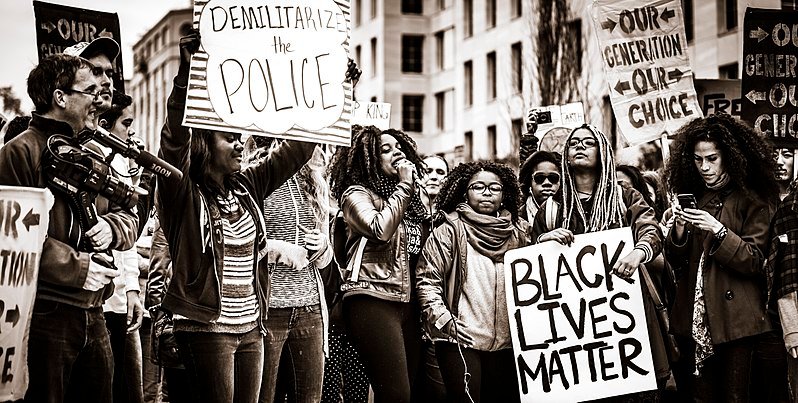Totalitarian regimes continue to exploit America’s racial tensions and unrest

A delegation of prominent black American journalists, artists, and political organizers embarked on a visit to the Palestinian territories in 2015, a few months following the tragic shooting of Michael Brown by a police officer in Ferguson, Missouri. Among the delegates were Patrisse Cullors, a co-founder of the Black Lives Matter movement, and Marc Lamont Hill, a renowned left-wing academic and commentator.
The journey, as described in a detailed account published in Ebony magazine, was orchestrated by Ahmad Abuznaid, a Palestinian lawyer and political activist based in Florida. Its primary objective, Abuznaid explained, was to provide the group members with a firsthand experience of the occupation, ethnic cleansing, and brutality imposed on Palestinians by Israel. Moreover, it aimed to foster genuine connections with fellow critics of the Jewish state, drawing inspiration from the legacies of African American leaders like Malcolm X, Angela Davis, and Stokely Carmichael.
The composition of Abuznaid’s trio of prominent activists is intriguing. Malcolm X, while a member of the Nation of Islam, also voiced support for Mao Zedong, the chairman of the Chinese Communist Party during the Cold War. Angela Davis was a prominent figure in the Black Panther movement of the 1960s and a longstanding member of the Communist Party USA. Stokely Carmichael, another influential figure in the 1960s black militant movement, was an unabashed racial separatist who condemned Zionism as a “diabolical movement.”
Throughout history, authoritarians have sought to exploit racial divisions in the United States to undermine capitalism and democracy. In the 1930s, luminaries such as poet Langston Hughes and scholar W.E.B. Du Bois were enticed to the Soviet Union, where they were lavishly received by Joseph Stalin and later encouraged to extol the virtues of life under communism.
Renowned black actor and singer Paul Robeson made his initial visit to Russia in 1934, shortly after Stalin’s involvement in a famine that claimed millions of Ukrainian lives. During his visit, Robeson granted an interview to the American Communist Party newspaper, the Daily Worker, where he expressed astonishment at the happiness he observed in Moscow. In 1952, the Soviet Union bestowed upon Robeson the Stalin Peace Prize.
However, it is crucial to note that most mainstream civil rights leaders in the United States rejected such overtures. Martin Luther King Jr. was an unwavering anticommunist, as were organizations such as the NAACP and the National Urban League. Thurgood Marshall, who led the NAACP’s legal team, vehemently opposed the idea that the Soviet system offered a better life for black Americans. He worked alongside the FBI to expose communist infiltrators, asserting that there was no place for communists or their sympathizers in the organization.
Although the era of Stalin and the Cold War has passed, totalitarian regimes still view America’s racial tensions as an opportunity for propaganda. In the wake of Michael Brown’s tragic death in 2014, Russian President Vladimir Putin, in an interview with “60 Minutes,” argued that the U.S. had no right to criticize his handling of dissidents, citing “the problem in Ferguson.” Meanwhile, state-run Chinese media extensively covered the George Floyd protests and criticized the U.S. government for its handling of racial inequality.
In contemporary times, a number of black leftists appear willing to align with these regimes. New York Times reporter Nikole Hannah-Jones went as far as to refer to Cuba as the “most equal” country in the Western Hemisphere. Black Lives Matter activists have defended Hamas’s actions against Israel, and Marc Lamont Hill questioned the media’s portrayal of Hamas as a terrorist organization rather than a democratically elected government or political party.
Recently, celebrated author Ta-Nehisi Coates joined this chorus, drawing parallels between Israelis and white supremacists, and Palestinians and black Americans living under segregation. His statements, made during an interview with “Democracy Now!,” highlighted the ongoing manipulation of racial unrest by totalitarian regimes.
In essence, the exploitation of racial tensions by totalitarian regimes remains a persistent issue, with a subset of American activists and influencers aligning with these regimes to advance their own agendas. The historical context and the contemporary examples serve as a stark reminder of the enduring relevance of this issue.













